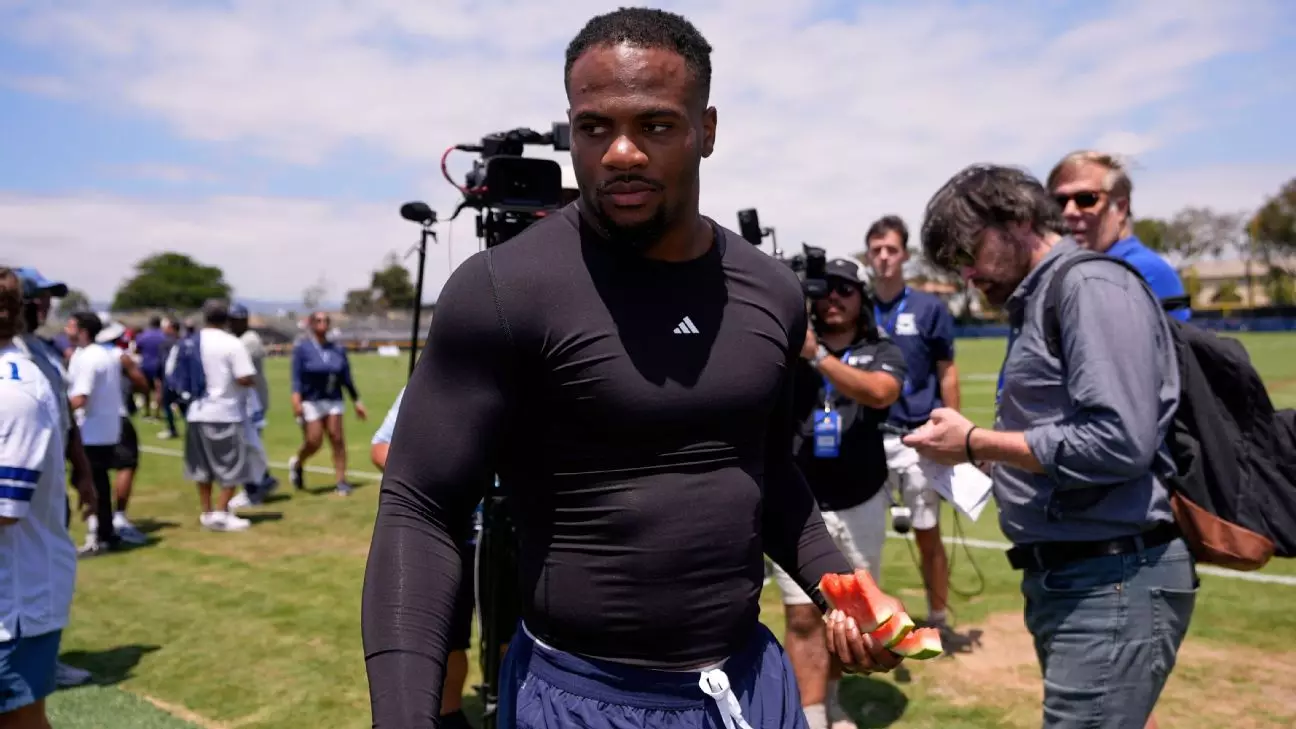In the complex world of professional football, talk of confidence can often serve as a smokescreen for underlying tensions. The Dallas Cowboys’ reassurance that Micah Parsons will be ready for the season opener exemplifies this phenomenon. Coach Brian Schottenheimer’s optimism, despite the absence of a contract extension and limited on-field practice, raises questions about the true state of readiness and the management’s transparency. It seems that the bravado about Parsons’s availability is more a reflection of organizational optimism than solid certainty, underscoring a broader issue of trust between players, management, and fans. This disconnect reveals a stark reality: in the high-stakes realm of the NFL, superficial confidence often masks deeper unresolved conflicts that can significantly impact team cohesion and performance.
The Cost of Overlooking Player Well-Being and Comprehensive Readiness
Parsons’s situation highlights a critical flaw in team management: underestimating the importance of full physical readiness over partial participation. While walkthroughs and team meetings occupy a crucial role in preparation, they cannot substitute for live drills, especially for a player whose value hinges on agility, change of direction, and explosive power. The reliance on Parsons’s self-awareness and body care, despite not practicing fully, strikes as a risky gamble with potentially severe consequences. Soft-tissue injuries are notoriously unpredictable and can devastate a season if not managed properly. The emphasis on what Parsons “has not lost”—his rush and playmaking ability—sidesteps an essential truth: absence of practice is a vulnerability, and team management should prioritize long-term health over short-term assurances.
The Fragility of Contract Negotiations and Its Impact on Performance
The unresolved contract extension adds a troubling layer to Parsons’s current predicament. The fact that no talks have resumed since March suggests a disconnect between the player’s expectations and the team’s willingness to commit. Such negotiations often cast a shadow over a player’s focus and motivation, especially when financial security hangs in the balance. Despite the apparent confidence in Parsons’s physical and mental preparation, the looming contract uncertainty can subtly erode his morale and readiness. Players are not just assets; they are dynamic beings whose performance can falter under persistent stress and distraction. The decision to keep negotiations dormant risks turning anticipation into anxiety, which can manifest on the field in even the most confident athletes.
The Political Implications of Tactical Decisions and Roster Management
The team’s final roster decisions, influenced by Parsons’s availability, reveal a strategic game played behind closed doors. The possibility of maintaining an extra pass rusher to compensate for uncertain health status illustrates how off-the-field issues ripple into tactical choices. This pragmatic but arguably shortsighted approach prioritizes immediate game readiness at the expense of team chemistry and long-term development. Such decisions reflect the broader tensions within the franchise: balancing business interests, player welfare, and competitive excellence. The Cowboys’ approach underscores a central concern in NFL team management—are short-term fixes and assurances sufficient, or do they come at the cost of undermining trust and cohesion when it matters most?
Ultimately, the narrative surrounding Micah Parsons exemplifies a broader truth about professional sports: surface-level confidence can be a dangerous illusion. Behind the polished public statements and strategic choices lies a fragile ecosystem dependent on trust, health, and psychological stability. While the Cowboys may project optimism about Parsons’s readiness, the reality is laden with risks that could have far-reaching consequences. In this high-stakes environment, mere hope and superficial assurance are inadequate defenses. True resilience requires addressing the underlying issues—contract certainty, comprehensive physical preparation, and honest communication—without which, talented athletes like Parsons remain vulnerable to setbacks that could derail not only individual careers but team aspirations as well.


Leave a Reply